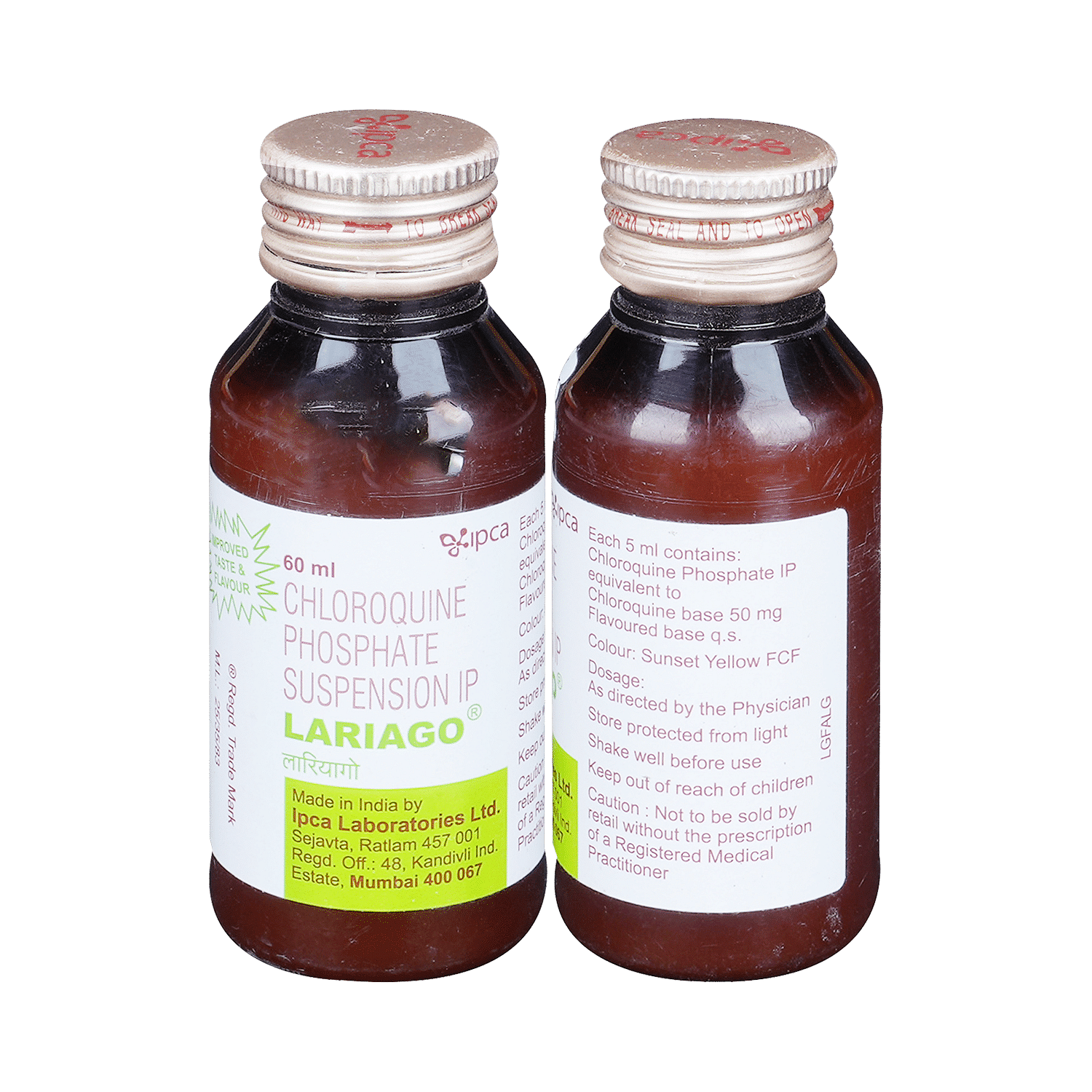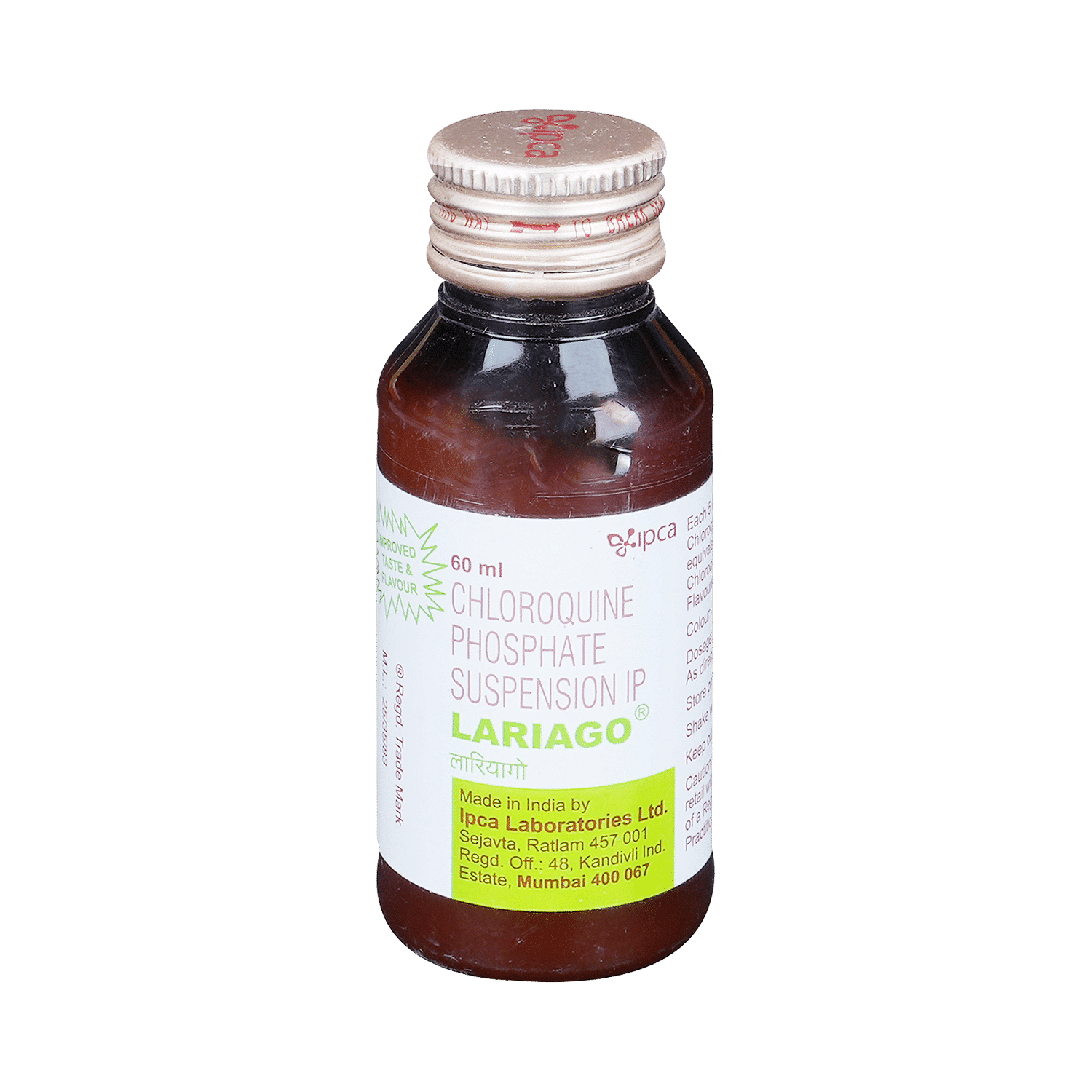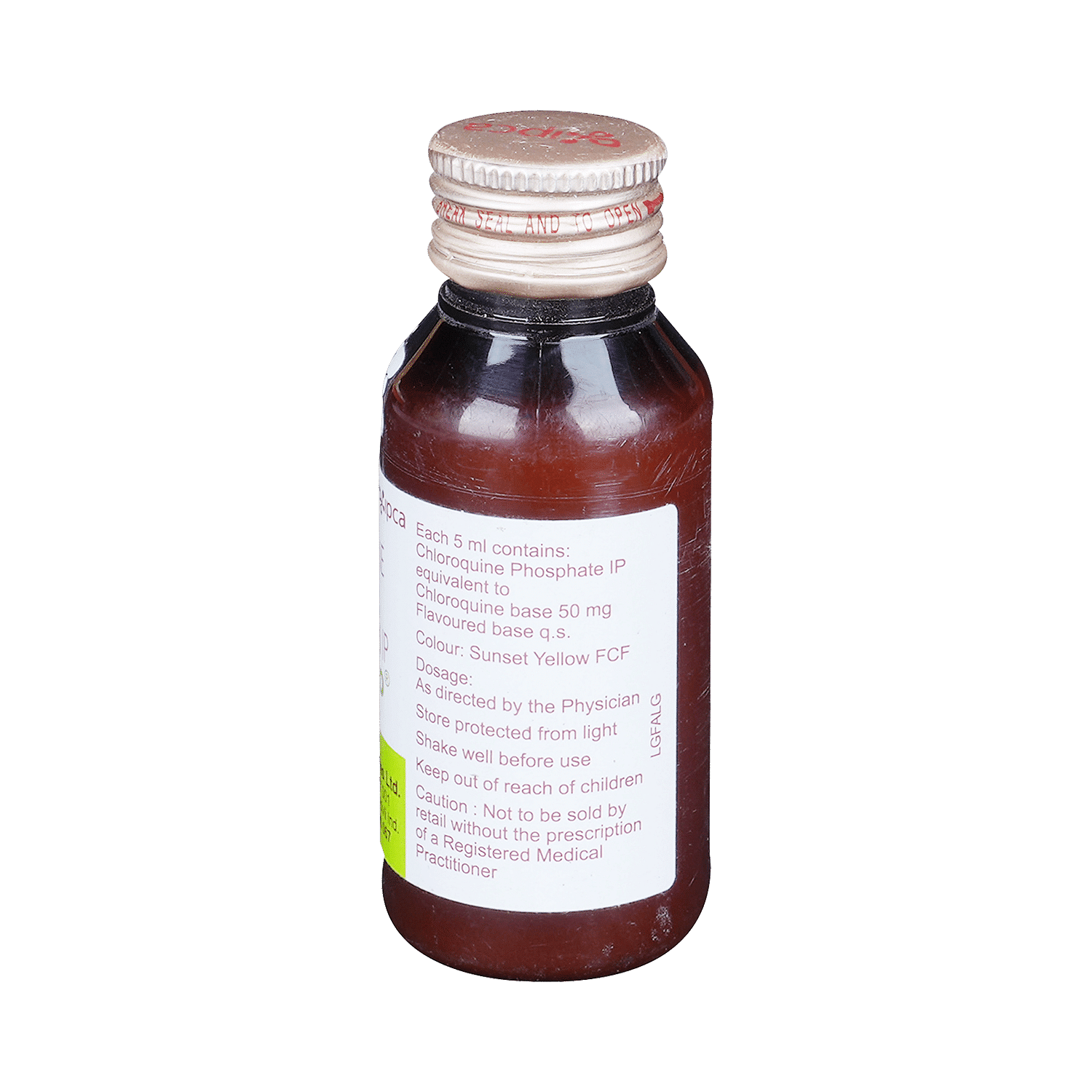


Lariago Suspension
Manufacturer
Ipca Laboratories Ltd
Salt Composition
Chloroquine (50mg/5ml)
Key Information
Short Description
Lariago Suspension is an anti-parasitic medicine used to prevent and treat malaria caused by a mosquito bite, as well as treat bowel infections in children caused by amoeba.
Dosage Form
Suspension
Introduction
Lariago Suspension is an anti-parasitic medicine used to prevent and treat malaria caused by a mosquito bite, as well as treat bowel infections in children caused by amoeba. It is given orally and is available in the form of a suspension. The medicine works by increasing the levels of heme and pH in the red blood cells where the parasite resides, and also acts by directly interfering with the genetic material of malarial parasites, thereby killing the parasite and stopping the infection from spreading.
Directions for Use
Take Lariago Suspension with food to decrease the risk of stomach upset. Lariago Suspension may make your child sensitive to sunlight. Take special care and use protective gear when your child is outdoors.
Safety Information
Side Effects
No common side effects listed.
Interacting Medicines
Leflunomide Mefloquine Penicillamine Digoxin
How it works
Lariago Suspension is an antiparasitic medication that is used to treat Malaria and Amoebiasis. It works by increasing the levels of heme and pH in the red blood cells where the parasite resides. It also acts by directly interfering with the genetic material of malarial parasites, thereby killing the parasite and stopping the infection from spreading.
Quick Tips
Use of mosquito repellent creams, liquids, coils, mats, etc. Do not let water accumulate in the house as it may lead to mosquito breeding. Instead, you can put a small amount of Kerosene oil in the water. This floating oil helps to trap and kill mosquito larvae and dramatically reduce mosquito breeding. Screen the houses with wire mesh. Use bed nets at home while sleeping. Wear clothes that cover the maximum surface area of the body. Consult your doctor immediately if your child exhibits serious side effects such as rash, swollen glands, problems with body organs like liver, kidney, or heart.
Frequently asked questions
What laboratory tests can be done to identify malaria in my child?
Your child needs to undergo laboratory testing such as complete blood count (CBC), thick or thin blood smear, and malaria rapid diagnostic test (RDT) for the diagnosis of malaria.
My child is diagnosed with G-6-PD enzyme deficiency. Is it safe to give Lariago Suspension?
Children with G-6-PD enzyme deficiency should avoid Lariago Suspension. Deficiency in this enzyme can lead to the breakdown of red blood cells, resulting in severe anemia. It's important to have your child’s enzyme level checked before starting any treatment.
Can other medicines be given at the same time as Lariago Suspension?
Lariago Suspension may interact with other medications or substances. Please inform your doctor about all the other medicines your child is taking before starting Lariago Suspension.
How should Lariago Suspension be stored?
Store Lariago Suspension at room temperature in a dry, dark place away from direct sunlight and heat. Keep medications out of reach and sight of children to prevent accidental ingestion.
What is Lariago Suspension and what is it used for?
Lariago Suspension is an antimalarial medication used for the treatment and prevention of malaria.
How long does it take for malaria symptoms to show after being bitten by an infected mosquito?
Symptoms of malaria can appear as quickly as 7 days after a bite from an infected mosquito. Typically, symptoms may appear between 7 and 18 days (incubation periods) after the infection.
Is it safe to use Lariago Suspension for a long period?
If you are prescribed Lariago Suspension for an extended period, regular eye checkups are recommended. This is because chloroquine in this medication can cause blurred vision, difficulty reading (words may disappear), and retinopathy (a rare eye condition) if taken for prolonged periods.
Who should not use Lariago Suspension?
Inform your doctor if you have psoriasis before taking Lariago Suspension as it may worsen your condition.
What are the side effects of Lariago Suspension?
Common side effects include stomach pain, nausea, vomiting, and headache. These side effects can often be reduced by taking the medicine with food.
Can chloroquine cure coronavirus (COVID-19)?
There is not enough medical evidence to confirm whether chloroquine is effective in treating COVID-19. Consult your doctor for appropriate treatment.
Can I take antacids along with Lariago Suspension?
Give a gap of at least 4 hours between taking antacids and Lariago Suspension.
What is the difference between hydroxychloroquine and chloroquine?
Both hydroxychloroquine and chloroquine were first approved for malaria treatment. However, chloroquine tends to cause more side effects than hydroxychloroquine. As a result, hydroxychloroquine is now more commonly used.
How can you prevent yourself from getting malaria?
Prevent malaria by taking precautionary measures such as covering your arms and legs to prevent mosquito bites, using a mosquito net and insect repellent. Consult your doctor about taking malaria prevention tablets if necessary. Ensure correct dosage and completion of the prescribed course.


